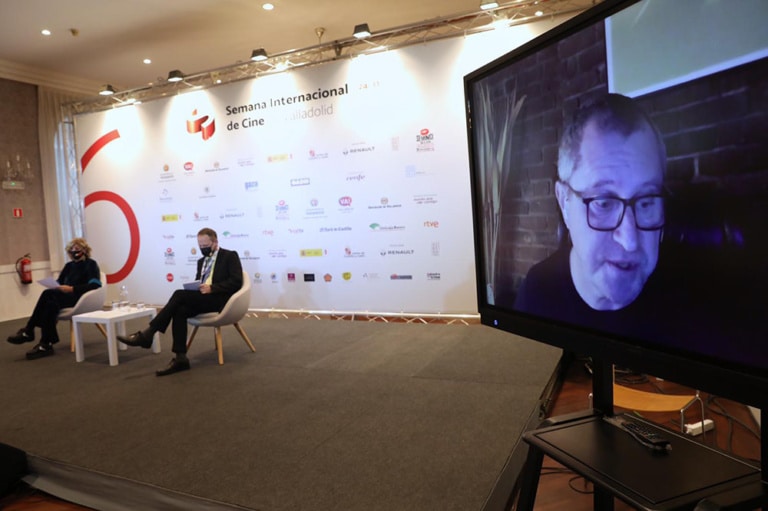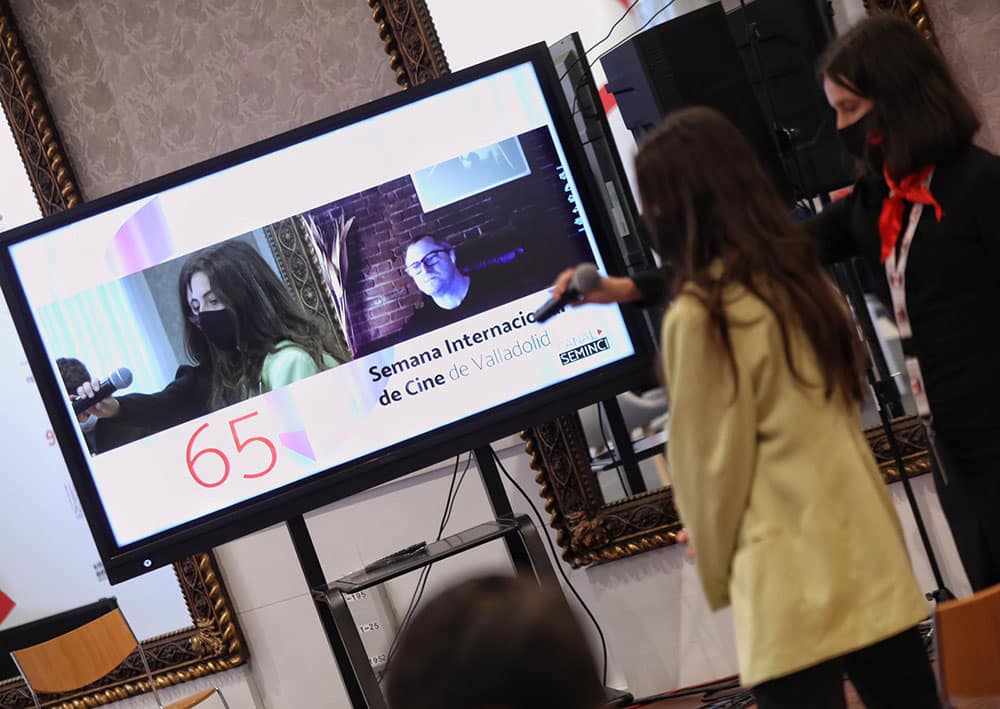
Director Vadim Perelman has offered his press conference online
- The Ukrainian director Vadim Perelman presented Persian Lessons in the Official Section of the 65th Seminci last Sunday. With this feature film, set during the Second World War and inspired by real events, he wanted to pay tribute to the victims of the Nazi Holocaust
25/10/2020.- Persian Lessons, which competes for the festival’s Golden Spike, tells the story of Gilles, a Belgian Jew arrested by the SS who claims to come from Persia in order to escape certain death. The captain of the concentration camp he arrives at happens to be interested in learning Farsi, so Gilles becomes his tutor — even though he can’t speak the language.
The names of the people who were sent to that camp, located in France, are the basis on which Gilles, renamed as Reza, invents the new language he teaches the captain. At the same time, and thanks to the protagonist’s good memory, those thousands of names are remembered in the film. It’s a special tribute that Perelman, a Jew with relatives who were victims of Nazism, wanted to pay to them.
“The film is a tribute to the victims. The names of those who were killed are remembered and, although they would normally be forgotten, they are preserved thanks to the main character,” he explained during the press conference, which he attended from his home in Los Angeles. Similarly, he stressed how important the film and the subject it addresses are for him. He also said that, despite the risk that people might get tired of this kind of films, he thinks it is important that they keep making them.
History seen fron two different perspectives
Unlike the dozens of feature films set in World War II, which are told “from one dimension only,” Perelman wanted to depict the two sides of the story —that of the victim and that of the “monster”— so as to make the tone “softer”.
Persian Lessons has already been released in Germany, where it has been a “resounding success”, and it will soon reach the screens of 60 countries. The film required significant work on the use of languages. On the one hand, the language that Gilles teaches the captain is completely invented, although they made sure it had an oriental ring to it so it would sound like Farsi. On the other hand, the protagonist, Nahuel Pérez Biscayart, is Argentinean and does not speak German, so he was learning the language and shooting the scenes almost simultaneously.
“I knew Nahuel didn’t speak French but had shot a film in French, so he had to have a talent for languages. But I didn’t speak German either, so making a film shot 95% in German was a challenge,” said the director. When talking about the casting process, Perelman said that he had always known he wanted to cast Lars Eidinger as the Nazi captain.
Screened at the Berlinale just a few days before the European incidence of the coronavirus pandemic was known, Persian Lessons is a “fun, highly entertaining” film. Although Perelman is sure every director feels the same way about their work, he admitted to being “very proud” of the film.



























![Logo Foro Cultural de Austria Madrid[1]](https://www.seminci.com/wp-content/uploads/2024/09/Logo-Foro-Cultural-de-Austria-Madrid1-300x76.jpg)








